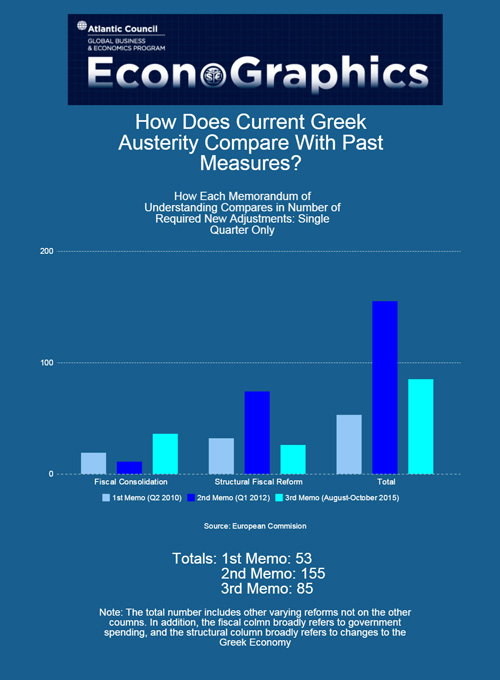The latest Memorandum of Understanding between the EU Institutions and the Greek Government passed in August, leaves Tsipras only one additional month to implement eighty-five initiatives. These reforms cover a diverse range of topics, from consolidating taxation policies to health and education reform. Greece is not an authoritarian regime, and making changes of this magnitude requires negotiations with varying civil society groups, labor unions, and a multitude of institutions. In addition, Tsipras must keep the various factions of his unstable coalition happy. With this in mind, the demands of the European Commission and Central Bank are highly unrealistic.

Looking at the three memorandums, the first allows for the most flexibility, with only fifty-three initiatives required. Comparatively, the second two memorandums are much more severe. Although the third memorandum appears to be less intense than the second, reality necessitated Tsipras hold elections prior to implementing reforms which leaves him only one month to complete the reforms.
The coming weeks will require strong stewardship from Tsipras as well as pragmatism from the European commission as they attempt to steer Greece out of this crisis.